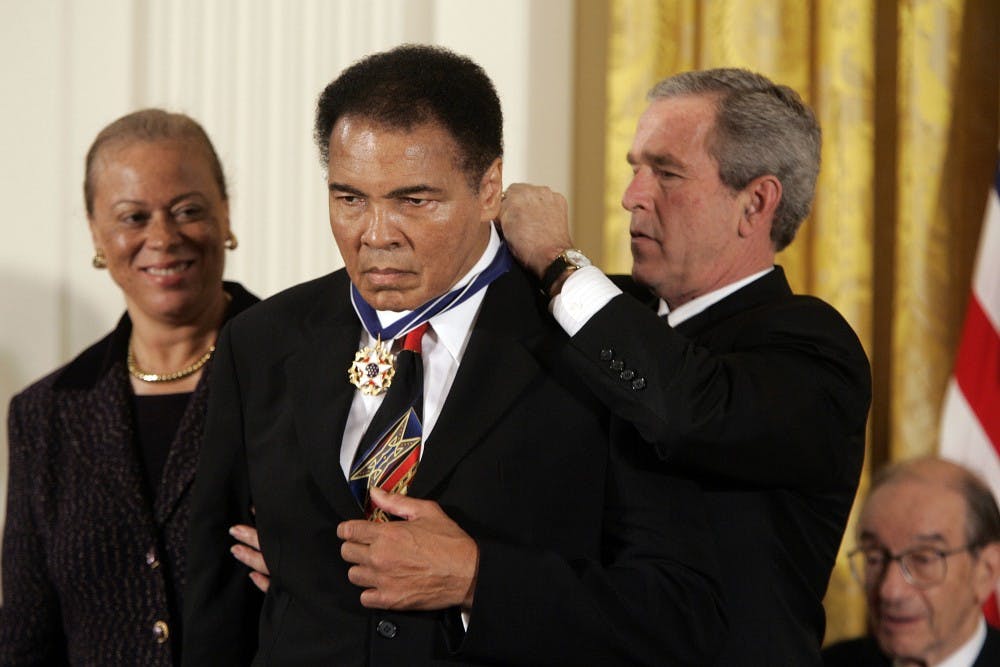Muhammad Ali is one of the greatest boxers who has ever graced the ring. He dominated one of the toughest eras in boxing, beating George Foreman, Joe Frazier and Sonny Liston.
But when he died Friday, June 3 in Scottsdale after a 32-year long battle with Parkinson’s, many would come to remember him for his legacy — and many others would remember him as the greatest Muslim sports hero to ever compete in the U.S.
Muhammad Ali was a hero to me, not only because of what he did in ring, but also because of what he did outside of it. The man was a civil rights leader who converted to Islam and was a fully devoted Muslim.
In the U.S. today, the religion of Islam isn’t viewed with open arms, and it certainly wasn't accepted in the '60s either. Yet he proudly changed his name from Cassius Clay to Muhammad Ali after he joined the Nation of Islam.
During this time, the civil rights movement and the Vietnam War both raged on, and Ali faced these social challenges while he was in the prime of his career.
Ali didn’t back off from speaking his mind, and he exhibited no fear when he talked about his stance for both civil rights and Vietnam.
Athletes, both then and now, rarely spoke of such major issues, yet Ali knew how to command his voice. He also knew that many people would disapprove of his opinions, though he continued to tackle hot button issues surrounding Islam, racism and — eventually — Vietnam.
When Ali refused to be inducted into the U.S. Armed Forces in 1967, he cited his religious beliefs and his stance for social justice on domestic soil.
Ali voiced concern for issues including how the U.S. treated people of color. He also said he had no “quarrel with those Vietcong.”
He was charged two months after that for draft evasion, and though the case went all the way to the Supreme Court, the case was overturned in 1971.
Although he beat the case, Ali took a hit in the boxing world when he was stripped of his World Heavyweight title and banned from boxing in the U.S. for three years. However, Ali stood his ground because he didn’t want to serve in a war he felt was wrong.
Ali never backed down from anything that would question his religion or morals. He didn’t fear losing sponsors or facing heat from the media. Even after his career in boxing, Ali found ways to motivate people across the world.
Even at the end of his life, with public figures such as Donald Trump attacking Islam, Ali said, "We as Muslims have to stand up to those who use Islam to advance their own personal agenda, they have alienated many from learning about Islam. True Muslims know or should know that it goes against our religion to try and force Islam on anybody.”
Ali revolutionized a lot in his time. His work ethic is praised to this day, and he was one of the most public athletes of all time.
And as public as he was, Ali didn’t just sit on the sidelines when it came to controversial events. He spoke his mind and didn’t fear the consequences from that. He defended Islam whenever he could, he was a civil rights leader and to many, he is considered the greatest boxer.
To me, Muhammad Ali was successful not only as a boxer in the ring, but also as a Muslim out of the ring.
Reach the reporter at osoussi@asu.edu or follow @omarksoussi on Twitter.
Like State Press Sports on Facebook and follow @statepresssport on Twitter.




